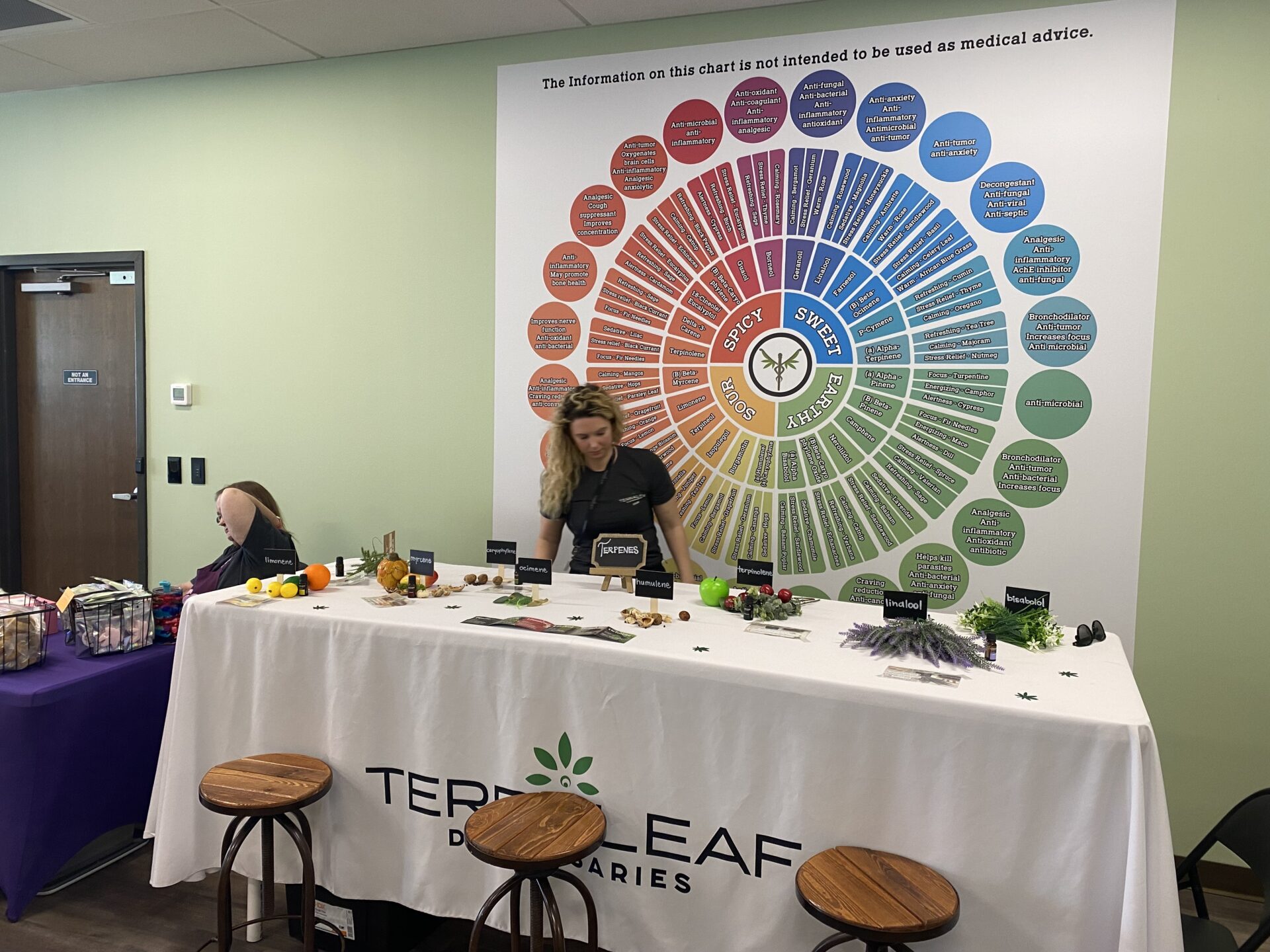The number “420” is a popular code for cannabis consumption.
On April 20, medical marijuana dispensaries in West Virginia were having a holiday celebration with food trucks, coffee, donuts and product specials.
Myriah Weatherholt, general manager at Cabell County’s The Landing dispensary, said April 20 is special.
“It’s kind of like a holiday for us. So we’re very excited to see our patients today,” Weatherholt said. “This job really breeds a level of intimacy with your patients. Often, people come in here with debilitating pain, and they’re seeing their life being changed by a plant.”
Patients using dispensaries are examined by a state qualified physician and receive a medical marijuana card if found to suffer from one of a dozen or so debilitating illnesses, like cancer, epilepsy or chronic pain.
Alanya Ryan, marketing director at Huntington’s Terraleaf dispensary, said any public misnomer that these are places to get pot and get high couldn’t be further from the truth.
“It’s the opioid capital of the world here in Huntington,” Ryan said, “We’re trying to get people off of opioids. And we’re successfully doing that. This is medication. This is a plant that grows in the ground. And it’s tested.”
Dispensary patient James Couch said he was using opioids to treat chronic pain and PTSD. He said using non-addictive marijuana has saved his life.
“It’s something that you can do and have an immediate release in the effect from, and I can put it down anytime,” Couch said. “It helps relieve my mind and takes my focus off a lot of my pain issues.”
The Landing, Terraleaf and other dispensaries around the state often bring physicians on site to help inform and recruit new patients. The highly state regulated facilities have medical counselors and education centers to help determine what strain of medical marijuana will best treat a certain condition.
“Sativa tends to give people a little bit of an energy boost. It’s good for daytime pain relief,” Weatherholt said. “And indica is going to be more of a heavy body feel that’s going to be a nighttime pain relief.”
Medical marijuana can be purchased in the form of flowers, tinctures, topicals and vapes. The state does not allow edibles. Ryan explained the growing processes help develop certain specific medical qualities, along with the general strains of Sativa, Indica and hybrids.
There are terpenes in each of the strains, she said. “It’s the essential oil of the plant that gives cannabis its properties with each of the strains. There might be a strain with a high percentage of Burstein, and that’s great for somebody with chronic pain, because it’s high in myrcene and it’s great for reducing inflammation.”
There are 48 state dispensaries, 10 in the Huntington area alone, and 21,000 West Virginians with medical marijuana cards. The industry is competitive, with billboards, specials and loyalty points. But Ryan said it’s about relieving pain as much as growing a patient base.
“We want patients to be able to get medicine wherever they want,” Ryan said. “If they want to check out the competition, we encourage that and we support all of them.”
Weatehrholt said several new patients registered at The Landing on April 20. She said the competition is healthy, both figuratively and literally.
“There are definitely more and more dispensaries opening,” she said. “That’s a positive sign that the program is growing, and that it’s working. We may have people that can’t inhale or vaporize, and they’re looking more for a capsule. We don’t always have those in stock, so I can send them to another store and say, hey, this place has the medicine you need. Sure it’s competitive, but I think that we are all in it for the same reason – we all just want to help patients get relief.”
So, on “420,” dispensaries and their patients celebrate.
